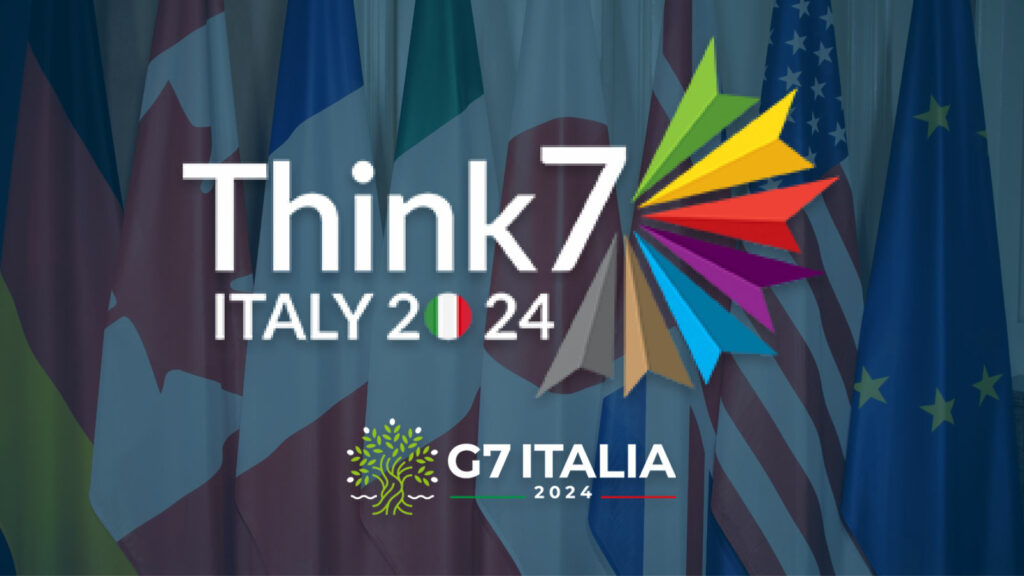
This week, 13-14 May, sees the start of the Think7 Italy Summit (T7), a meeting of one of the G7 working groups under the Italian presidency. Open Knowledge Foundation is honoured to participate and influence the decisions of the world’s largest economies by offering a Policy Brief in partnership with the Digital Public Goods Alliance (DPGA), Open Future Foundation, the Center for European Policy Network (CEP) and MicroSave Consulting.
The title of our contribution is “Democratic governance of AI systems and datasets”, offered in the context of Task Force 4: Science and Digitalisation for a Better Future.
As the Open Knowledge Foundation, we are concerned about a closed digital future where only a few elites can seize the power of AI for private purposes. We want more democracy in both the way AI is built and deployed. That’s why we’re pushing to adopt public option AI models designed to further the public interest. This approach aligns closely with the principles outlined in the Hiroshima AI Process Comprehensive Policy Framework (Responsible AI practices, ethical guidelines, and global collaboration) and the G20 New Delhi Leaders’ Declaration (leveraging DPI for inclusive development).
As the Think7 Summit unfolds, we want to reiterate our message and highlight once again the importance of openness as a design principle for the democratic use and collective social benefit of Artificial Intelligence. As a starting point, we recommend G7 countries to create a future where AI is not locked for a few, with two actions:
Investing in open, publicly funded datasets:
- Support the creation of high-quality open datasets accessible for AI development to address global challenges and serve the public interest – especially when new datasets can fill data blindspots. In addition, deploying these datasets should go hand in hand with adopting governance mechanisms that balance data accessibility for AI development with rights protection and risk mitigation. This requires identifying priority areas and allocating funding to support initiatives that create, refine and make available datasets tailored for AI advancement.
- Promote inclusive governance of these datasets and encourage collaboration among stakeholders such as researchers, developers, policymakers, and civil society groups. Datasets with a significant public impact should be managed as a data commons, with principles and policies that ensure equitable data sharing as a digital public good. This approach enables collective decision-making by either the data subjects or other stakeholders involved in the data governance process while protecting data rights and serving the public interest.
Supporting the creation of Open Source AI:
- When allocating funds for AI projects, governments should prioritise supporting open-source initiatives. Additionally, in funding AI development, governments should ensure that any resources generated from this funding, including datasets, are shared as openly as possible.
- Governments should strengthen the open-source ecosystem by promoting the use of open-source AI solutions in the public sector. This could include encouraging government agencies to use open-source software by establishing procurement policies that favour open-source software and building competencies inside the public administration.
We hope that the G7 economic leaders will consider our recommendations carefully and commit to building a fairer, more sustainable and open future.
You can register on the T7 website to follow the sessions of each task force online.








